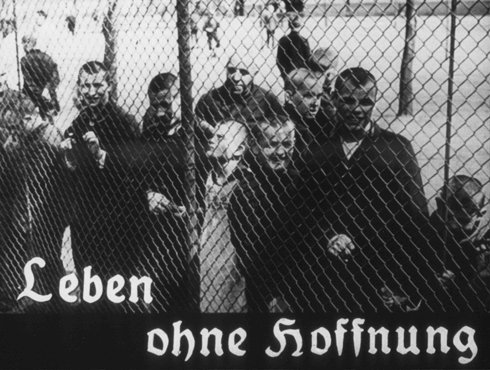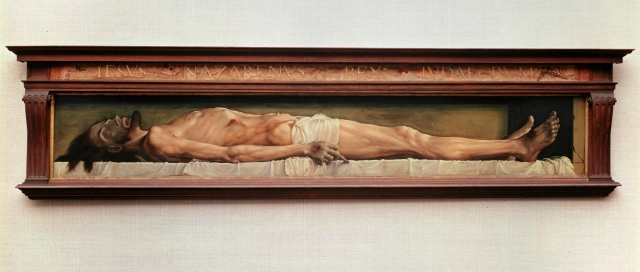The past two weeks have been heavy; I am exhausted in every way. I am saddened and have been, at some points, near despairing. The pain of this world has been weighing on me; we are so, so broken.
I wrote most of this last week when the Ferguson decision came out. Darren Wilson, the cop who killed Michael Brown, an unarmed black teenager, will not be indicted, and St. Louis has broken into a deep and raw mourning. This week, I have attended two events:
The first was a Skype call with survivors of the mass kidnapping in Ayotzinapa, Mexico earlier this year and with mothers of the missing students. Their story was heartbreaking: “police” involved with the cartels attacked with violent force, shot six of their friends, and kidnapped forty-three others. They have not been seen since; I fear that they will not be recovered, since the mayor of Iguala has all but admitted his complicity in working with the cartels.
The second was a rally to protest the innocent black men and women killed by police in the United States, primarily the most recent to not receive justice: Eric Garner. Months ago, he was put into an illegal chokehold by police and died; the medical examiner ruled it a homicide. He was unarmed and innocent with his hands in the air, and the entire thing was caught on camera. As Jon Stewart explains, “None of the ambiguities that existed in the Ferguson case exist in the Staten Island case, and yet the outcome is exactly the same.” The cop who murdered Eric Garner will not be indicted. The only person who will be is the cameraman. I’ll let the dystopian undertones sink in, but it’s sick. It is sick.
I haven’t posted here for months, and I hadn’t said much about these issues before; I have had a lot of moments lately when I haven’t known what to say or how to say it. But I’m tired of staying silent. I’m tired. Enough is enough.
Until recently I had hesitations; I have been focused on facts instead of emotions and pain, and I have not wanted to act out of incorrect motives. The first of these I repent of; the second I stand by. If my motivation is guilt, a desire to “be a part of history” or collect a story to tell later, I am incorrect, because all of these motivations point to one place: myself. Guilt can be a helpful motivator, but when the focus shifts to your own pain (I feel bad) instead of the pain of others (they are hurting), you take away their voices. When I say I am hurting, it’s true, but it is not my own pain, and it does not supersede theirs. I do mourn, but it is not about me; as a white woman, privileged in education and wealth, I do not wish to stifle the voices of others. It’s a biblical mandate to speak up for others:
“Speak up for those who cannot speak for themselves,
for the rights of all who are destitute.
Speak up and judge fairly;
defend the rights of the poor and needy.” Proverbs 31:8-9
but it’s also important to listen to and encourage the voices of those most affected as well as joining with them (my friend James has some powerful words about the Ferguson decision here).
The focus must be turned back to the Ferguson community, to the families and individuals who have lost one of their own to police brutality, who are subjected every day to unfair and racist treatment. We can’t think that what happened to Michael Brown is a one-time event that we can brush over because of the grand jury’s decision; regardless of whether you think it’s fair or not, you can’t take this as the end of an event, something that we can finally stop hearing about in the news. There are countless others – Eric Garner, Tamir Rice (a child), John Crawford III have all been killed, unarmed, in the past few months. Ferguson is a sign of a deeper systemic injustice, a crying out over existing pain; police have released tear gas on peaceful protests and responded to anger and pain with more fear. The police force is not reflective of the demographic they are supposed to protect, and there is deep and understandable mistrust.
As the body of Christ, we need to be listening, empathizing, and reacting in love. We cannot continue divided; Jesus came to seek and to save the lost, to bring peace to this world, and to heal relationships, but he also spoke out against injustice and hypocrisy.
I’ve been praying a lot, and that’s what I want to ask of you as well. As a friend of mine said at a prayer meeting last week, “Don’t think that we’re ‘just praying,’ or praying instead of doing something ‘real’ like protesting. Prayer is powerful and effective. It can move mountains, enact change, and transform lives and communities.”
I want to go forward with my actions as a reflection of Jesus’ truth; I want to speak out for peaceful change, to get involved in a way that Christ would want me to. Is protesting a part of this? If we look back at the Civil Rights movement of the 1960s, not a single person would say that what they were doing was not right; not a single person can look at those protesters and call their actions anything but heroic. I have always looked back on them with inspiration, and until now I have assumed that, if I lived at that time, I would have joined them – the side of the just and righteous. Recently I have not been so sure; my natural tendency is toward inaction, toward comfort and safety and the status quo. It is easy to look back at history to make yourself feel good; it is hard to realize that we are living in a fishbowl, that we do not always recognize the cultural waters we swim in, and that “legal” does not always mean “right.”
I am praying that God would challenge that tendency in me in every way, that he would urge me on toward the right thing, not the comfortable thing. I am praying that I will not act out of fear or stability but out of justice and peace and love. I am praying that things will change, and that I will not look back with regret that I did not help change them. I am praying that my heart will change, too, and every ounce that is not God’s would be eradicated. This week I reached a breaking point, and standing with hundreds of students in solidarity was necessary.
The gospel is not easy, safe, or comfortable; the gospel does not allow the status quo or stem from the culture of the time. The gospel is living and active. The gospel makes us uncomfortable and does not allow us to stay where we want to stay.
Throughout history some of the greatest civil rights movements have been helmed by Christians, just as the greatest opposition has come from those who claim the faith but are more comfortable with the status quo. It has always been difficult, and there have always been those who vocally and violently fight to keep things exactly the way that they are.
Things are not okay exactly the way that they are.
Lives are being lost in injustice. The world is deeply, painfully broken; we need to see this pain. As Christians, especially, we cannot look at this world as somewhere we’re escaping from, cloistering ourselves off until Jesus returns. This world is our home. Christ came for every broken individual living inside it, and he came to heal and restore it. As N.T. Wright and many others have pointed out, it’s right in the Lord’s Prayer: “Our Father, who art in heaven, hallowed be thy name. Thy kingdom come, thy will be done, on earth as it is in heaven.” In Jeremiah, God’s first command to the exiles is to get involved:
This is what the Lord Almighty, the God of Israel, says to all those I carried into exile from Jerusalem to Babylon: “Build houses and settle down; plant gardens and eat what they produce… Increase in number there; do not decrease. Also, seek the peace and prosperity of the city to which I have carried you into exile. Pray to the Lord for it, because if it prospers, you too will prosper.” Jeremiah 29:4-7
We are not called to evacuate, we are called to change things; we are called to enter in, just as Christ did, to the brokenness and the horror of it all, to come alongside people, to pray for our city. Empathy is an act of entering into someone else’s pain and shouldering it; who has done this more than our God?
Don’t mistake my language, please: I’m not saying that we should be playing savior. It’s an imperfect metaphor. We are not God, and we cannot save anyone – only Jesus can save, and only he can bring true salvation and healing. All we can do is come alongside our brothers and our sisters and live with them, fight with them, love with them, mourn with them. Our response should not be contradiction, but compassion. It’s not easy to empathize – to share -another’s pain – but it’s necessary. The language of solidarity reflects this (“todos somos Ayotzinapa” – we are all Ayotzinapa).
Things are broken, but we do not have an uncaring God; as my dear and wise friend, Caroline, told me the night of the grand jury decision, we have a God who weeps for us. As Hebrews 4:15 says,
“For we do not have a high priest who is unable to empathize with our weaknesses, but we have one who has been tempted in every way, just as we are—yet he did not sin.”
He has also suffered in every way; he understands. He calls us to be pained for our neighbors, to mourn those who are hurting and those who do not know him – who do not have his peace or his hope. We do not have a God who told us to cloister ourselves off from culture, society, and the world; we have a God of empathy who has sent us out into it to go into it to make disciples and to love the broken, to acknowledge our own fallen nature and strive to be more like him.
The fact that I can even write this gives me a luxury others do not have. I pray for the courage to speak for (and with) the oppressed, to stand against injustice, and to carry out my life with deep sympathy for others. My prayer is for transformation – in this world, in this city, in the lives of individuals, and in my own heart.
><>
Read this: Pastor Leonce Crump’s very salient thoughts: It’s Time to Listen: “Will White Evangelicals Ever Acknowledge Systemic Injustice?”
Why You Should Still Care about Ferguson Despite the Facts (terrible title, good article)
Think this doesn’t directly apply to you? 12 things white people can do now because Ferguson
An incredibly powerful stream of the Skype call to Iguala earlier this week, with survivors and mothers of the taken; in English here.
As usual, let me know if you want to talk about anything. Thanks.




